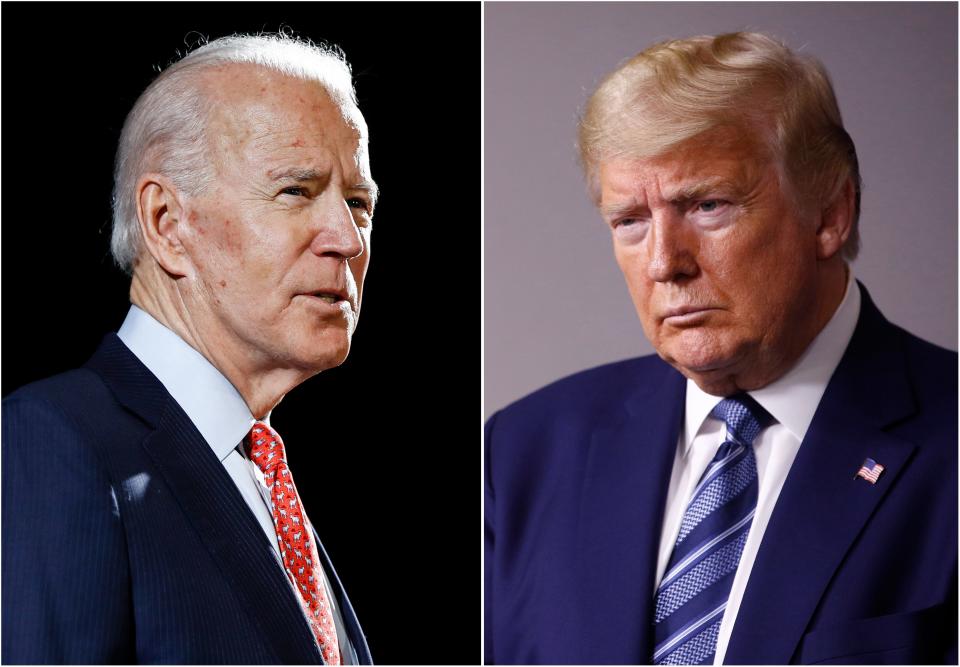Facebook bans political ads after polls close on Election Day as U.S. tensions rise
With tensions rising between President Donald Trump and his Democratic challenger former Vice President Joe Biden, Facebook is taking urgent new steps to keep political candidates and their campaigns from using its social media platforms to cast doubt on the election and its outcome.
The company said Wednesday that it will ban all political, election and social issue ads after the polls close on Nov. 3 for a week or longer. Google adopted a similar rule two weeks ago.
On Election Day, Facebook will notify users of the latest results at the top of news feeds on Facebook and Instagram.
If a presidential candidate or party declares victory before the election is called by major media outlets, those posts will be labeled saying the count is still in process. If a winner is declared but contested by a rival candidate or party, those posts will be labeled with the name of the winner.
Also on Election Day, Facebook will remove implicit calls to visit polling places to intimidate voters that use militarized language such as “army” or “battle.” In a debate with Biden last week, Trump urged supporters to turn out at the polls and “watch very carefully” on Election Day.
Facebook and the election: Facebook readying 'break-glass' tools to restrict content if violence erupts after election
Facebook civil rights audit: Audit warns of Trump, voter suppression ahead of presidential election
Democratic Massachusetts Sen. Elizabeth Warren called Wednesday's election policy changes "performative."
"The problem isn't the ads themselves. The problem is Facebook's refusal to regulate its ads, change its broken algorithm, or take responsibility for the power it's amassed," she tweeted.
The latest measures to protect the integrity of the election on Facebook underscore growing concerns about the election’s legitimacy among a large swath of Americans of all political persuasions.
Many of those concerns are linked to unproven claims raised by Trump, often on social media, of potential fraud involving mail-in ballots as well as his refusal to agree to a peaceful transition of power if he loses.
Those concerns are a high priority for social media companies whose platforms have been used in elections around the world to spread conspiracy theories, divisive messages and outright falsehoods.

Facebook, which is working to avoid a repeat of the 2016 U.S. election in which Russian agents used the platform to amplify division in the American electorate, told reporters on a call Wednesday that it is continuing to evaluate and plan “for different scenarios.”
“This is shaping up to be a very unique election,” Guy Rosen, vice president for integrity at Facebook, said during the call.
In September, Facebook said it would not allow ads that attempt to delegitimize the election or prematurely declare victory. Earlier that month, it said it would not allow new political ads in the final week before the election.
Daron Shaw, a professor in the government department at the University of Texas at Austin, says American voters should not allow rising tensions to shake their confidence in the electoral process.
"I tend to be an optimist about these sorts of things. The institutions of the American government are resilient, electoral systems in particular,” said Shaw, author of “The Race to 270: The Electoral College and the Campaign Strategies of 2000 and 2004.” “Have faith. Have confidence. Democracy works, but it doesn’t necessarily work fast. We have the right to know as citizens, but we don’t have the right to know immediately.”
This article originally appeared on USA TODAY: Facebook bans political ads after polls close on Election Day

